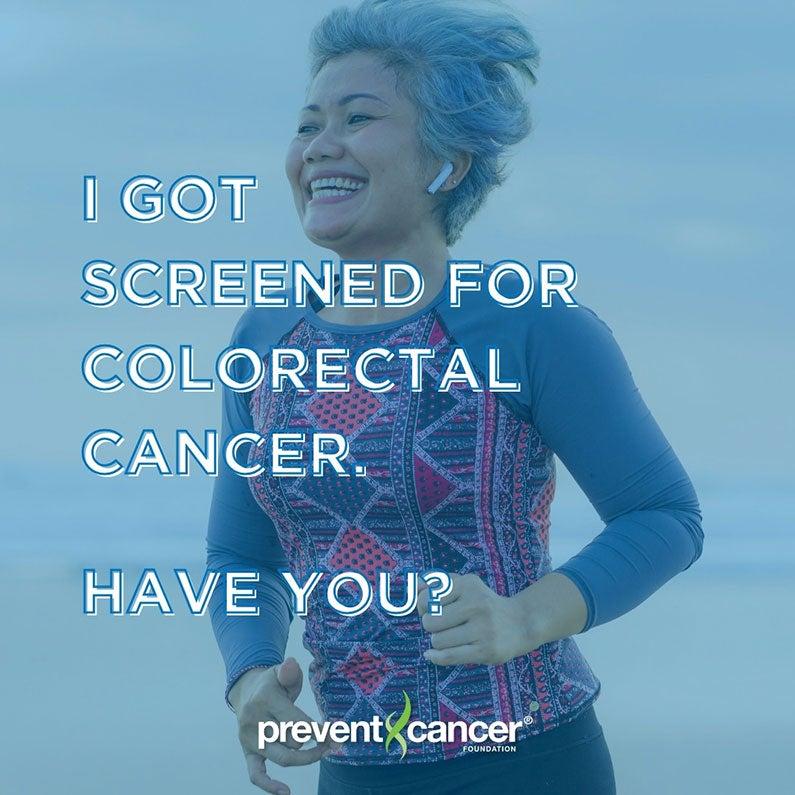
Craig Meddin never thought the gastrointestinal issues he’d experienced in his 30s could have been cancer. But his health care provider recommended he get screened before the recommended age of 45 due to his symptoms.
Craig canceled his first colonoscopy due to an impending hurricane, and then it was delayed due to the COVID-19 pandemic; once restrictions lifted, he heeded the doctor’s advice. Several polyps (grape-like growths on the wall of the large intestine) were removed during the colonoscopy and the following week, he received his colorectal cancer diagnosis.
It was clear to Craig if he had waited any longer, the prognosis could have been much worse. Following treatment, Craig is now in remission and feeling as energetic as he did when he was a decade younger.
Approximately 152,000 people in the U.S. like Craig face a colorectal cancer diagnosis each year, according to the American Cancer Society.1 Black people and people over 50 are affected at disproportionate rates. Together, we can change this and help save lives through prevention, screening, and early detection.
The U.S. Preventive Services Task Force recommends that people at average risk for colorectal cancer begin screening at age 45 and continue through age 75. If you are age 76–85, talk with your health care provider about whether to continue screening based on factors such as your overall health status and the results of your prior screening tests. After age 85, you should not get screened for colorectal cancer.
What is colorectal cancer?
Colorectal cancer is cancer of the colon or rectum (also known as bowel cancer). According to the Centers for Disease Control and Prevention, it is the fourth leading cause of cancer and the second leading cause of mortality from cancer in the U.S.2
Colorectal cancer survival rates are 92% when the cancer is detected early and more treatment options are available.
Almost all colorectal cancers begin as precancerous polyps in the colon or rectum. They can be present for years before invasive cancer develops, but they can be detected through screening and removed before becoming cancerous.
All Americans ages 45 and over should speak to their health care providers about scheduling colorectal cancer screenings, which are covered by private insurance and Medicare.
What are my screening options?
While colonoscopies have been a standard recommendation for colorectal cancer screening, they aren’t your only option. Asymptomatic, average-risk Americans may consider an at-home colorectal cancer screening test. There are two types of at-home colorectal cancer screening tests: Fecal immunochemical tests (FIT) check for hidden blood in stool, and stool DNA tests check for blood as well as DNA changes in cells. The presence of blood or DNA changes could indicate cancer or precancerous conditions.
With a colonoscopy, which should be done every 10 years unless your health care provider recommends otherwise, polyps can be found and removed during the same procedure. If an at-home colorectal cancer screening test comes back positive, a follow-up colonoscopy would be necessary. If your test comes back negative, however, you would be up to date until your next scheduled test (usually every 1-3 years) barring changes to your health or family medical history.
At-home tests allow more flexibility for those who are deterred by colonoscopy prep or who face barriers to colonoscopy appointments, such as work, family obligations or unreliable transportation.
If you have not scheduled your routine cancer screenings, there is no better time than now to get your appointments scheduled.
How else can I reduce my risk for colorectal cancer?
In addition to getting screened according to guidelines, there are several ways to reduce your risk for colorectal cancer:
- Avoid or limit alcohol consumption. Drinking alcohol is linked to several types of cancer, including colorectal. To reduce your risk of cancer, it’s best to avoid alcohol completely. If you do choose to drink alcohol, have no more than one drink a day if you are a woman or no more than two drinks a day if you are a man. The more you drink, the greater your risk of cancer.
- Don't smoke. If you do, it’s never too late to quit.
- Maintain a healthy weight and be physically active. Being overweight or obese increases your risk of colorectal cancer. Being physically active can reduce your colorectal cancer risk. By getting at least 30 minutes of physical activity at least five days a week, you can make a big difference in your general health and well-being.
- Eat a healthy diet. Eat lots of fruits, vegetables, beans and whole grains. Limit red meat and cut out processed meats.
- Know your family medical history. Most people who get cancer do not have a family history of the disease, which is one reason screening is so important—but a personal or family history of cancer or certain other diseases may increase your risk.
If you have any symptoms of colorectal cancer that last for more than a few days, such as blood in your stool, stomach pain, bloating or cramps, unexplained weight loss or changes in your bowel habits (frequent constipation or diarrhea), you should discuss these with a health care provider right away. These symptoms may be caused by conditions other than cancer. The only way to know for sure what is causing your symptoms is to see your doctor.

While colorectal cancer may seem like something we would rather not talk about, National Colorectal Cancer Awareness Month is meant to inspire action and deliver a simple and powerful message—screening saves lives. If you have not scheduled your routine cancer screenings, there is no better time than now to get your appointments scheduled.
Sources
1. American Cancer Society. Key Statistics for Colorectal Cancer. Found on the internet at https://www.cancer.org/cancer/types/colon-rectal-cancer/about/key-statistics.html
2. Centers for Disease Control and Prevention. Colorectal Cancer Statistics. Found on the internet at https://www.cdc.gov/cancer/colorectal/statistics/




